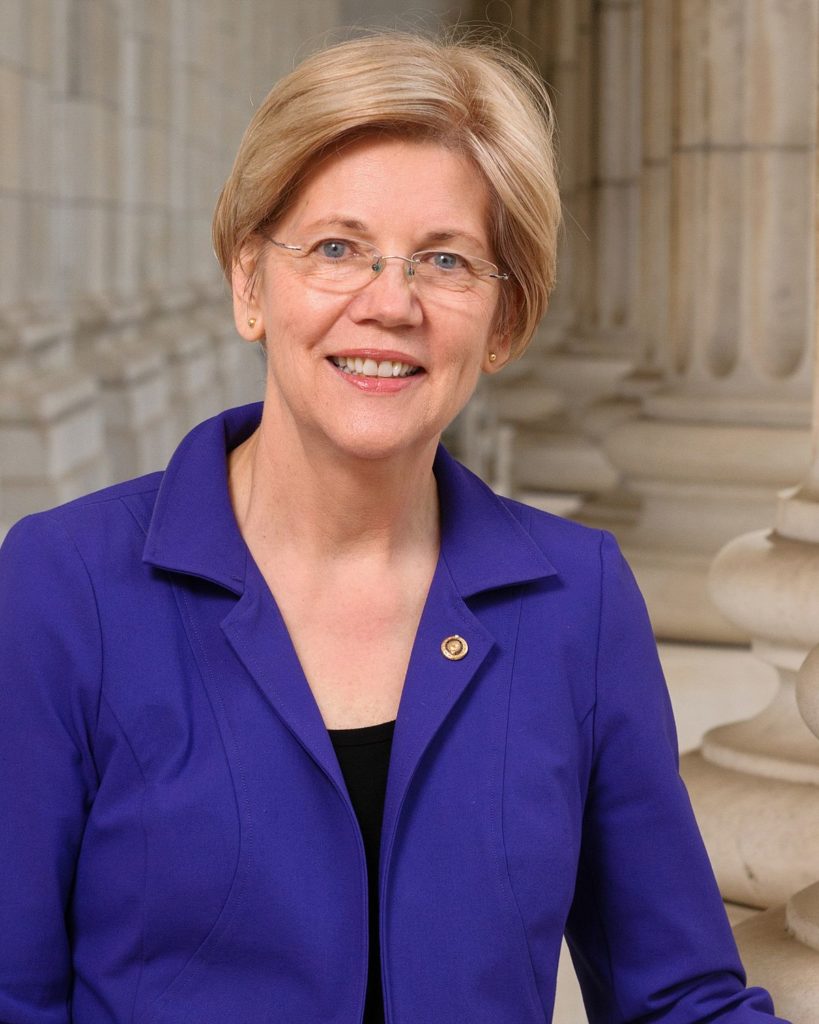Doctrine Over Reason

As quoted by the Wall Street Journal, Senator Elizabeth Warren said during a recent Senate Finance hearing discussing intellectual property [IP] with U.S. trade Rep. Katherine Tai, “Special [IP] protections for drug companies are an even bigger issue than Covid-19 alone and I think it’s time now for our trade negotiators to take leadership and actively set rules that lower drug costs for American families”. The Senator continued saying, “We’re fighting over a waiver to [IP] rules – rules that never should have existed in the first place”. The Journal editor’s comment, “Progressives haven’t been able to persuade a majority of Congress to abolish drug patents, so they aim to do so through trade agreements starting with the WTO vaccine waiver” (Ref.1). But is patent protection the reason for the high price of drugs in the U.S. and what would happen to drug development without patent protection?
There are at least three reasons for the high price of drugs in the U.S., two of which are directly caused by ill-conceived Congressional action with the third due to Congressional inaction. One is an overzealous, bloated, Federal Drug Administration (FDA), funded and guided by vague Congressional direction, that requires an overly expensive extra voluminous amount of data to apply for approval. The agency is obsessed with avoiding any political damage that may happen from an approved drug (Ref.2).
The second Congressional error causing increases in drug costs was initiated in 1987, granting group purchasing organizations (GPOs) and pharmacy benefit managers (PBMs) an anti-kickback exception. American hospital GPOs were founded by a group of New York hospitals in 1910 for laundry services to save money by buying in bulk. However, as the hospital industry grew, GPOs became separate profit seeking large corporations. PBMs, founded in 1968 as drug discounters, have also become large profit seeking corporations as intermediaries for prescription drugs. Importantly, this change in law permitted GPOs/PBMs to charge manufacturers administrative fees for allowing their products into supply line/insurers contracts. Middlemen demanding fees from suppliers is otherwise illegal because it limits purchaser ability to buy on value. These arrangements destroy market prices, invariably raising costs, forcing some suppliers out of business, causing shortages. Then in 1991 HHS Inspector General (IG) extended the GPOs/PBMs exception allowing them to collect rebates from suppliers, while supposedly returning some monies back to Medicare/Medicaid and insurance companies. The 1987 Congressional and 1991 IG actions were created to save money but has allowed both now to extract hundreds of $billions from the healthcare system (Ref.3). Recently, Senators Chuck Grassley (R-Iowa) and Maria Cantwell (D-Wash.) have asked the Federal Trade Commission to investigate the effects of these GPO/PBM ant-kickback exceptions on drug prices. (Ref.4).
Buying drugs with middlemen and 3rd party insurers has become so convoluted with no relationship to manufacturing and development costs; excellent videos have been made to explain this arcane complexity to the public (Ref.5,6). It does NOT have to be so complicated. Drug/supply manufacturers and retail pharmacies could post their cash prices on the internet. Patients could buy most prescribed drugs for cash and receive payment for expensive items from their insurance carrier, thus no need for middlemen.
As for the third reason for our high drug prices, Congressional inaction, other advanced national economies have price controls on pharmaceutical products covering production, but ignoring development costs, which are funded completely by the American consumer. This is patently unfair. Yet Congress has ignored this issue when ratifying trade agreements.
Perhaps Senator Warren is unaware of these major factors affecting drug pricing or is she just promoting a particular political doctrine for public consumption? But advancing a policy of cancelling intellectual property protection would be the end of drug development in this country.
1. Editorial Staff, Elizabeth Warren Tells the Truth, The Wall Street Journal, May 16,2021, available at: https://ww1w.wsj.com/articles/elizabeth-warren-tells-the-truth-11621195472 (Accessed May 17, 2021)
2. Ken Fisher, M.D., The FDA, Does it Protect OR Hurt Us? December 13, 2020, Authentic Medicine, October 13, 22020, available at: https://authenticmedicine.com/2020/12/the-fda-does-it-protect-or-hurt-us/ (Accessed December 13, 2020)
3. Norm Sinclair, Medical Monopoly, dbusiness, November 27, 2018, available at: https://www.dbusiness.com/business-features/medical-monopoly/ (Accessed May 18, 2021)
4. Marty Schladen, Grassley urges federal probe of drug middlemen, Iowa Capital Dispatch, May 10, 2021, available at: https://iowacapitaldispatch.com/2021/05/10/grassley-urges-federal-probe-of-drug-middlemen/ (Accessed May 18, 2021)
5. YouTube, No Middlemen, No Middlemen.org, July 19, 2018, available at: https://www.youtube.com/watch?v=aQhsPLcFwN8 (Accessed August 20, 2018)
6. Arizona PBS, Do Prescription Drug Middlemen Help Keep Prices High? PBS News Hour Weekend, August 11, 2018, available at: https://www.pbs.org/newshour/show/do-prescription-drug-middlemen-help-keep-prices-high (Accessed August 22, 2018)









In case you missed questioning of rep. from a pharmaceutical company who claimed reason for high drug prices was cost of research & development it was revealed that their expenditures from 2013 to 2018 consisted of the following. $2.45 billion for research & development. $4.71 billion for advertising. $334 million for executive salaries & finally $63 billion for stock buyback & dividends.